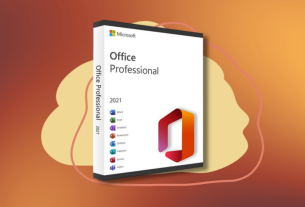Rich people in poor places want to show off their wealth. And their less affluent counterparts feel pressure to fake it, at least in public. Nobody wants the stigma of being thought poor. – Virginia Postrel
Postrel’s quote has a basis in this week’s Torah portion. As an aside, for better or for worse, I owe part of my economic philosophy to her. As a college student, I never missed an issue of Reason magazine, where she was editor in chief, and without question I was influenced by her classical liberal, or broadly libertarian, views.
This week we read, “You have enough, circle the mountain, and turn to the north [tzafonah]” (Devarim 2:3).
Rabbi Yissocher Frand writes: “The Kli Yakar lived during a time when the Jews enjoyed prosperity, and he did not approve of the way they dealt with it. He urged them to be more discreet, to keep a low profile and not draw attention to themselves with ostentatious lifestyles. He supported his exhortation with a homiletic interpretation of Moshe’s words to the Jewish people. ‘You have enough, circle the mountain, and turn to the north (tzafonah).’ The word tzafonah can also be translated as ‘the hidden.’ In other words, you have enough material things. Now hide them! If you’ve got it, you don’t have to flaunt it!”
He continues: “Eisav has a long memory, writes the Kli Yakar. Whenever he sees Yaakov prosper, he believes with all his heart that it is only because of the blessings that he believes Yaakov stole, the blessings that should have gone to Eisav.”
We now know that you shouldn’t show off your wealth. But how do you become financially successful in the first place? I am often asked how I define financial success. For me, it’s living within your means, having more income than expenses, and having the confidence that when you make a purchase, you know that you have the money to pay for it – as opposed to buying because you need to keep up with the Joneses.
The credit card is not your friend
If you don’t have the money, don’t buy the item. Sounds like grandma’s advice, right? Well, that’s not so simple. That’s because in modern culture, if you don’t have the money, no worries, Visa and Mastercard will take care of you!
So individuals start buying things on credit and with payment plans, even though they know they don’t have the money needed for the purchase. I don’t know anyone who has gotten rich from borrowing money for consumer needs. The only ones who get rich from debt are Visa and Mastercard. They can’t make money fast enough, especially now, with surging interest rates.
Obviously, if you don’t have the money to pay off the initial loan, you won’t have the money to pay off successive loans, and it becomes like a black hole. You just get sucked in, and it becomes more and more difficult to escape.
So how do you escape the black hole? The method I like to use is to list all your debts from smallest to biggest, and start attacking the smallest debt. I know there is a rule of thumb that says it makes more economic sense to pay off the highest-interest debts, but I like to have some mini wins. Getting rid of a debt creates the confidence and motivation that it’s really possible to succeed. Start paying off those smaller debts, and see how quickly you can start to turn things around.
Your money makes money
Are you sick of working so hard? Well if you get your money working for you, you very well may not have to work until you are 67. After you become debt-free, you need to make saving and investing a priority. Make a habit of “paying yourself first” every month. Whether you invest in real estate (where you get a monthly rent check) or in a well-diversified stock and bond portfolio, focus on a slow and steady approach to building wealth. While you may try to hit a “grand slam” that would make you instantly wealthy, the chances of that happening are very slim. Slow and steady is the way to grow your net worth.
It’s now or never
Don’t procrastinate. Too often, individuals delay investing because they think their accounts are too small, or the market is too high. They think if they don’t have hundreds of thousands of dollars, there is no point in investing. So they end up keeping their money in a zero-percent interest account in the bank. By doing this, not only are they not growing their money, they are actually losing money to inflation. Or they say the market is trading near all-time highs, so they will invest after the market drops.
Statistically, the stock market has been a very profitable investment over the long term, which means it trades at record-high levels frequently. The best and brightest investors can’t time market movements, so don’t think that as a novice, you can do better and predict when the market will drop and by how much.
Get rid of your debt, focus on saving and investing, and you can “win” financially. Once you do, please don’t show it off to everyone else!
The information contained in this article reflects the opinion of the author and not necessarily the opinion of Portfolio Resources Group, Inc. or its affiliates.
Aaron Katsman is the author of Retirement GPS: How to Navigate Your Way to A Secure Financial Future with Global Investing. www.gpsinvestor.com; [email protected]



